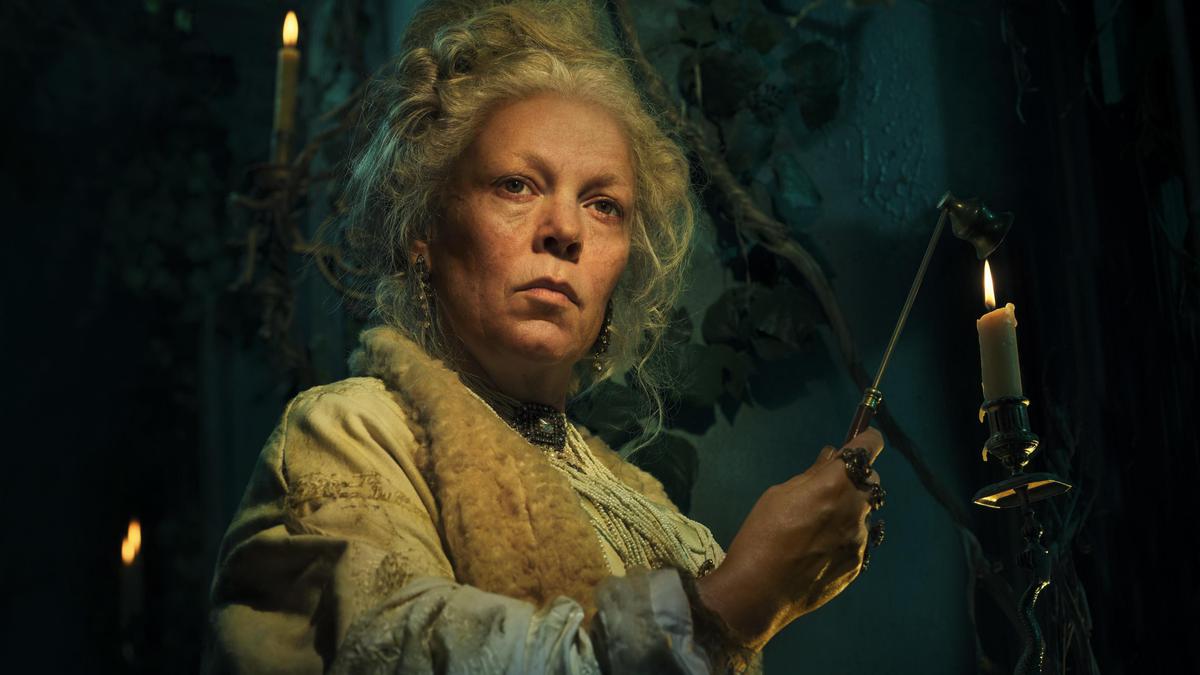
‘Great Expectations’ series review: Olivia Colman shines through in this dark, drab adaptation
The Hindu
The only thing that sets the 2023 adaptation apart from the rest is the exaggeration of Miss Havisham’s rage and her overwhelming presence that Olivia Colman slips into with ease
Characteristic of the socio-economic conditions many orphans in Charles Dickens’ works are born into, the 2023 BBC show Great Expectations is gloomy, dark (literally) and struggles to provide avenues to flesh out its characters.
Pip Gargery (Tom Sweet; later, Fionn Whitehead) is gearing up to celebrate his first Christmas since his parents’ death. Living under the watchful eye of his sister Sara (Hayley Squires) and brother Joe (Owen McDonnell) in Kent, he labours away in their rundown blacksmith shop. Despite being shackled by the limitations he was born into, Pip dreams of breaking free and exploring the world.
When approached with the offer to serve as a companion to Estella (Shalom Brune-Franklin), the daughter of a local wealthy woman, Pip obliges. But when he meets her mother Amelia Havisham (Olivia Colman), he realises that he has a price to pay in order to realise his dreams of wealth and success. Amelia, who got left at the altar, is a bitter woman who continues to live in her wedding dress and channels her rage by encouraging Estella to treat Pip with cruelty.
An unknown benefactor helps fund Pip’s journey to London where he meets his new boss Mr. Jaggers (Ashley ‘Bashy’ Thomas) and together they plot to overthrow Bentley Drummle’s spice trade (Matthew Needham).
Since the 1917 silent film by Robert G Vignola, the Charles Dickens classic has been subject to over a dozen adaptations for the screen. The only thing that sets the 2023 adaptation apart from the rest is the exaggeration of Miss Havisham’s rage and her overwhelming presence that Olivia slips into with ease. Watching Olivia embody a woman whose rage originates from betrayal and heartbreak and direct it towards all the men she encounters and manipulates is bewitching. The Academy Award-winner’s performance is arguably one of the only elements holding the series together. As she trails around donning a decaying wedding dress in a cluttered home stuck in time, we get a respite from the tumultuous writing that fails to ground us in Charles Dickens’ London.
By adding in unnecessary sequences with violence and sex, not only is the filmmaker not rigorous in respecting the source material but gives the impression that he is confused about the direction of the adaptation.
Enveloped in fog, the actors bring their own interpretations of the characters they are essaying to the screen, turning the show into a disjointed tale of socio-economic struggle in 19th-century London that lacks a uniform tonality. Treating the characters like his puppets, Steven Knight confuses the audience with their respective narrative arcs and identities. The pacing only moves to the filmmaker’s disadvantage and the colour-blind casting exacerbates the confusion.





















 Run 3 Space | Play Space Running Game
Run 3 Space | Play Space Running Game Traffic Jam 3D | Online Racing Game
Traffic Jam 3D | Online Racing Game Duck Hunt | Play Old Classic Game
Duck Hunt | Play Old Classic Game











